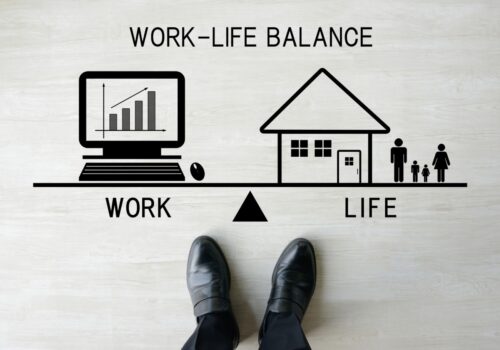Grief, an emotion often associated with loss, can profoundly impact an individual’s personal and professional life. In the workplace, where professionalism and productivity are paramount, managing grief can be particularly challenging. The complexity of balancing emotional well-being with job responsibilities requires thoughtful strategies and support. Navigating through grief while maintaining professional commitments can be quite a tricky ordeal, but here are some ways to make the process easier.
1. Acknowledging and Accepting Your Grief
The first step in managing grief is acknowledging it. It’s essential to recognize that grief is a natural response to loss and that it’s okay to feel and express those emotions. Accepting grief as a part of your experience is a critical step in the healing process. This acknowledgement also helps in seeking the appropriate support and making necessary adjustments in your work life.
2. Turning to Spirituality
Many find comfort in spirituality during times of grief, as it can offer a sense of peace and understanding. Turning to religious and spiritual practices or even seeking guidance from trusted psychics can provide solace and perspective. Engaging in meditation, prayer, or other spiritual rituals that align with your beliefs can help in finding meaning, fostering a sense of connection, and aiding in emotional healing.
3. Seeking Professional Support
Professional support, such as counseling or grief therapy, can be invaluable in managing grief. Mental health professionals specialize in helping individuals process and cope with emotional distress. Many workplaces offer Employee Assistance Programs (EAPs) that provide access to counseling services. If such programs are unavailable, seeking external mental health support can be a proactive step toward managing your grief in a healthy and constructive manner.
4. Communicating with Colleagues and Supervisors
Open communication with colleagues and supervisors about your state of grief is important. It helps in setting realistic expectations and boundaries at work. Be honest about your current emotional state and how it might affect your performance. A conversation about your needs, whether it’s time off or a temporary reduction in workload, can lead to fostering understanding with management and getting support from your workplace.
5. Creating a Supportive Work Environment
Employers and colleagues play an important role in creating a supportive work environment for those dealing with grief. This support can take the form of offering flexible working arrangements, providing a listening ear, or simply showing empathy and understanding. A workplace culture that acknowledges and respects personal challenges can make a significant difference in how employees cope with grief.
6. Managing Workload and Responsibilities
While grieving, managing your usual workload can be challenging. It’s important to prioritize tasks and focus on what’s essential. Communicate with your supervisor about delegating or rescheduling non-critical tasks. Being transparent about your capacity can help you find a balance between your professional responsibilities and personal healing process. Despite the need to be productive, it’s okay to ask for help and take things one step at a time.
7. Practicing Self-Care and Wellness
Self-care is paramount when dealing with grief, especially in a demanding work environment. Engage in activities that nourish your physical, emotional, and mental well-being. This can include mindfulness practices, regular physical exercise, or simply ensuring you get enough rest. Eating healthy and staying hydrated also make a huge difference in your overall functioning.
8. Setting Realistic Expectations for Yourself
It’s important to remember to set realistic expectations for yourself. Understand that grief can affect your concentration, decision-making abilities, and overall productivity. It’s okay not to perform at your usual level. Be patient with yourself and recognize that healing from grief is a process that takes time. Communicating your current capabilities to your supervisors and colleagues can also help set realistic expectations at your workplace.
9. Finding Comfort in Routine
While it may seem counterintuitive, maintaining a regular routine can provide a sense of stability and normalcy amidst the turmoil of grief. A structured daily schedule, including regular work hours and breaks, can help anchor you during times of emotional upheaval. However, be flexible and allow yourself the freedom to step back when needed. Balancing the comfort of routine with the need for occasional breaks is key to managing grief at work.
10. Utilizing Time-Off and Flexible Scheduling
Do not hesitate to utilize time-off options or request flexible scheduling if you find it challenging to cope. Many organizations offer bereavement leave or flexible working arrangements for employees dealing with loss. Taking time away from the pressures of work can provide the space needed to grieve, reflect, and begin the healing process. If a complete break isn’t feasible, consider working reduced hours or remotely, if your job permits, to manage your mental health more effectively.
11. Engaging in Meaningful Projects
Sometimes, immersing yourself in meaningful work or projects can be a constructive way to manage grief. Focusing on tasks that you find fulfilling can provide a sense of purpose and achievement. If possible, seek assignments that are engaging and rewarding. This doesn’t mean overburdening yourself but rather finding work that resonates with you and helps channel your emotions productively.
12. Preparing for Triggers and Setbacks
Grief often involves unexpected triggers and setbacks. It’s important to be aware that certain situations, conversations, or dates can rekindle feelings of loss and sadness. Prepare strategies to cope with these moments, such as having a support system at work or a private space where you can take a moment for yourself. Being aware of potential triggers and having a plan can help you overcome these challenges more effectively.
Navigating grief in the workplace requires a balance of self-care, open communication, and support from your professional environment. Remember, it’s okay to grieve at your own pace and seek the support you need, whether it’s from colleagues, mental health professionals, or through personal wellness practices. By implementing the strategies discussed, you can manage your grief while maintaining your professional responsibilities.
















